Many in Germany and across Europe are rubbing their eyes, writes Constanze Stelzenmüller, as a bearded and bespectacled former bookseller without a high-school diploma appears to have a serious chance at wresting Germany’s top political office from Chancellor Angela Merkel. This piece originally appeared in The Washington Post.
They say we Germans are predictable and boring. Yet, seven months ahead of the September 24 national elections, we are rubbing our eyes as a bearded and bespectacled former bookseller without a high-school diploma appears to have a serious chance at wresting Germany’s top political office from Chancellor Angela Merkel—hailed by some as the leader of the free world and the last bastion of the liberal international order.
What with the Trump White House expressing—how do we put this politely?—reservations about the whole NATO and E.U. thing (not to mention Germany itself), plus expected Russian interference in our vote, we Germans had honestly felt we were not missing out on political titillation. But here we are with an election that is actually becoming a choice. It’s enough to make one reach thoughtfully for a beer.
Martin Schulz, the former European Parliament president who was nominated as the Social Democratic (SPD) candidate for chancellor in late January, has been enjoying a remarkable run in the polls ever since. His party, which had been languishing in poll Siberia around 20 percent for many months, shot up by more than 10 percentage points, landing ahead of Merkel’s Christian Democrats in three voter surveys for the first time in a decade. According to the latest monthly Deutschlandtrend poll, if the election were held today, Schulz would win with 50 percent of the vote as opposed to Merkel’s 34 percent.
So who is the man who is generating all this euphoria? Unlike the last Social Democrat in the Chancellery, Gerhard Schroeder, with his fondness for Brioni suits and Cuban cigars, or the wine and chess aficionado Peer Steinbrück, the grizzled and rumpled 61-year-old Schulz looks exactly like what he is: a classic Social Democrat, a throwback to the days when the SPD was a working-class party led by people who knew what manual labor was—and routinely got between 30 percent and 40 percent of the popular vote.
The Schulz story is one likely to appeal to many ordinary Germans. Born in a village on the westernmost border of Germany, just a milk run from both Belgium and the Netherlands, he has relatives in all three countries—which makes him a natural European. His father was a local policeman and a Social Democrat. After a professional soccer career was foiled by an injury, he became an alcoholic, but managed to become sober and turn his life around. He joined the SPD youth organization at 19 and worked his way up the ladder in local politics. He is a rousing speaker and a sincerely passionate Europhile; the liberal daily Süddeutsche Zeitung recently called him a “politically correct populist.” One of his campaign slogans—one not likely to endear him to the White House—is MEGA, or Make Europe Great Again. Since his nomination, the SPD has acquired an unprecedented 6,000 new members. “The Schulz” has become a viral Twitter meme.
All this is like Viagra to a SPD badly demoralized by a decade of stinging election defeats, polls in free fall and a hemorrhaging membership. Worse, as the junior partner to the CDU in two grand coalitions (2005-2009 and 2013-now), the SPD watched helplessly as Merkel modernized her party and triangulated it towards the middle with policies that appealed to broad swathes of the left as well: scrapping nuclear power, introducing the minimum wage and more equal rights for gays, and eliminating conscription.
Killjoys are noting that Merkel’s last SPD opponent, Steinbrück, enjoyed similarly high popular support when he was nominated in 2012. He is now a former politician. In fact, Merkel’s extraordinary quarter-century trajectory from being an unknown East German scientist in 1989 to three-term chancellor of a unified Germany is littered with the carcasses of dozens of competitors, many of them seasoned party operators. The only office ever held by Schulz in Germany was that of councilor and then mayor of the town of Würselen (pop. 38,962), a job he left in 1994 to become a member of the European Parliament.
Whether Schulz can break the curse of the SPD and become a genuine danger to Merkel’s bid for a fourth term hinges on the answer to one simple question: Do Germans want a choice—or actual change?
Both Schulz and his party are clearly betting on the latter. Foreign Minister Sigmar Gabriel challenged Germany’s NATO commitment to spend 2 percent of its gross domestic product on defense at the Munich Security Conference. Schulz gave a speech Sunday in the East German town of Leipzig (birthplace of social democracy in 1863) in which he reiterated his criticism of the Agenda 2010 labor market and welfare reforms—which have enabled German growth, but also made the labor market more fragile.
It is an irony lost on no one in Germany that Merkel, who had already been taking a much more aggressive line on law and order, is now also fiercely defending Agenda 2010—which was implemented by Schroeder and ultimately caused his party to break faith with him.
Seven months in politics is a long time. But one thing is clear: Germans are going to see a genuine fight for their votes this time, and they like it. An extra bonus: Support for the right-wing Alternative for Germany/AfD has been nearly halved to 8 percent.
To be continued. And now for that beer.
The Brookings Institution is committed to quality, independence, and impact.
We are supported by a diverse array of funders. In line with our values and policies, each Brookings publication represents the sole views of its author(s).

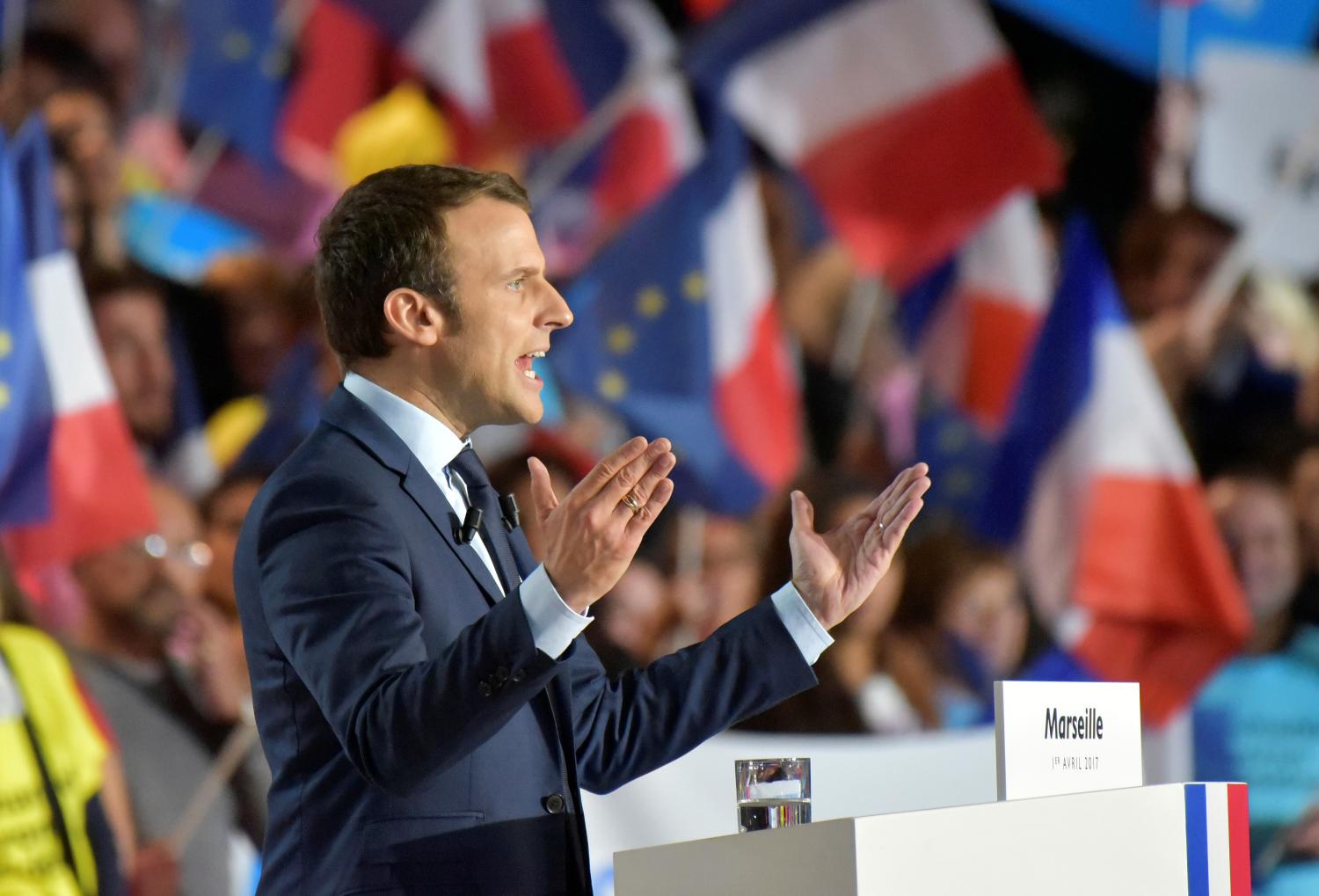
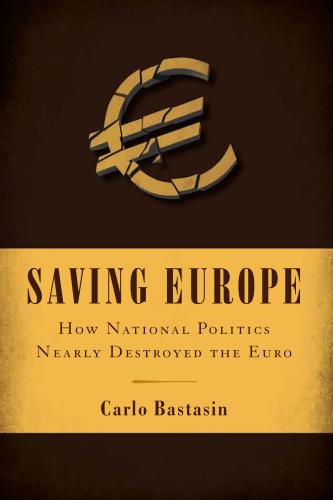
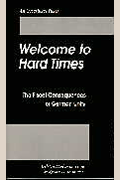

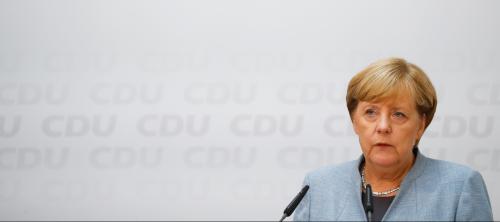
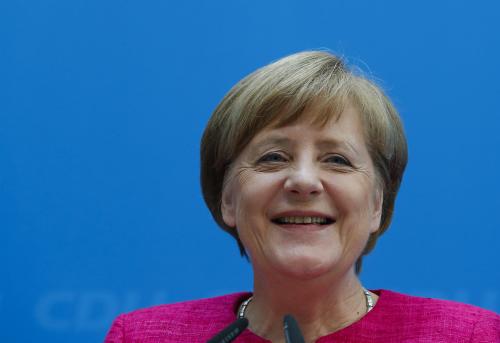
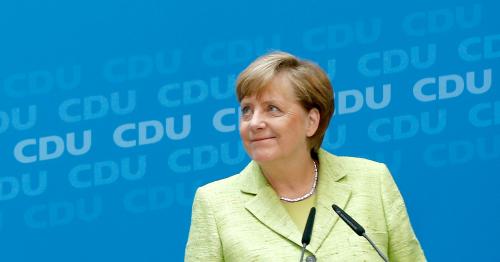

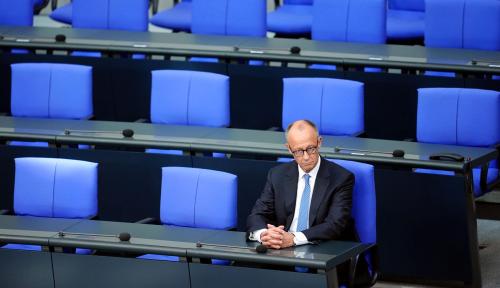
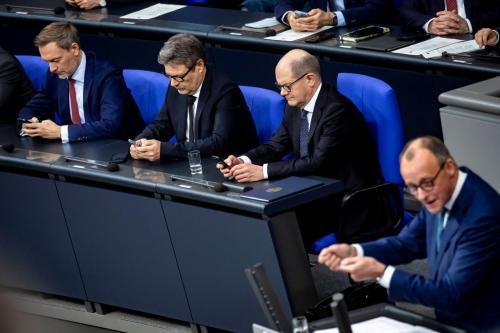
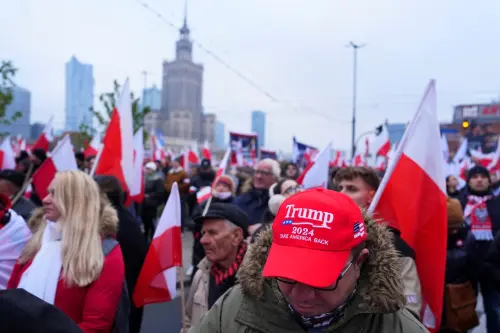
Commentary
Meet Martin Schulz, the Europhile populist shaking up Germany’s elections
March 2, 2017